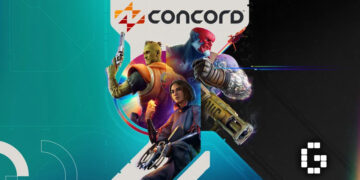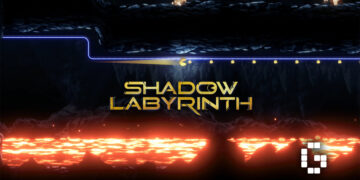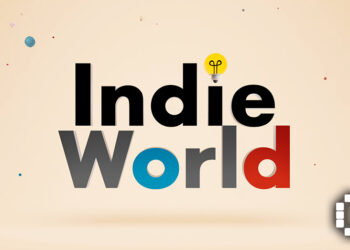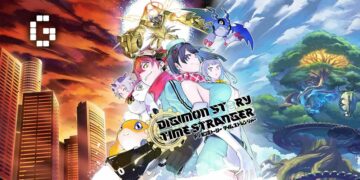This week, the Fighting Game community is engaged in a new discourse- should fighting games be free to play?
It’s not like it’s an entirely new concept, after all. Brawlhalla, one of the most popular platform fighters on PC and Fantasy Strike are both free to play, so it’s not like it spells the immediate end of a game.
Fighting game YouTuber Maximilian certainly echoes that sentiment in his latest video, where he argues that fighting games absolutely should go free to play, to overcome the trouble of a dwindling playerbase over time.
“Unless your fighting game is free to play, where you actually get [a large playerbase],”, Maximilian says in his video. “Most fighting games are going to result in the same problem- unless there’s big sales, or like, expansions, or reasons to go back and check out old thing because new thing is really cool, that’s just the nature of things- people get excited about shit”.
“There’s always the barrier. You have to pull your wallet out and spend money”, he says.
It’s not just big name YouTubers either- some members of the community seem to genuinely support the idea of the genre becoming more approachable by not having you pay 60 USD for a game you might ultimately end up trading in because you didn’t vibe with it.
Pushback From The Community
Of course, it’s been met with some pushback- fighting game fans are very protective of their genre, and many see adopting a free-to-play model as a ticket to other predatory game design mechanics.
One of these would be how a hypothetical free to play fighting game could handle gating of free content. Nowadays, it looks like if your game is free to play, its primary metric is engagement time. You see it in games like Genshin Impact, where so much content is locked behind other unrelated content that you have to do, making it so that even if you unlocked the latest characters you’d spend hours until they were usable if you weren’t up to date with the game’s content.
It comes down to what you’re willing to lock behind microtransactions. While skins might be an obvious first guess, there’s always the temptation to go further in what goes behind the paywall. It’s easy to make rhetorical arguments like “what if they put training mode behind the paywall?”, especially since it’s a confirmed sale to the entire competitive community.

Some fans are also worried about the art direction of free to play fighting games. Detractors of games like Brawlhalla seem to assume it comes from the game’s free to play nature- but supporters of a free to play fighting game like commentator Sajam seem to argue that if anything, Brawlhalla’s popularity is proof that the free to play model works, even when your game isn’t the most visually appealing.
“Should be a co-sign of the effectiveness, no? Even if a game you’re not interested in does it right, it’s a good example of how it could be done for something you enjoy”, he says.
Past Attempts

Brawlhalla aside, fighting games have attempted to mix in the free to play model before. A notable example is Dead or Alive 5 and Dead or Alive 6, which both featured free-to-play Core Fighters Editions. These had a rotating roster of characters, and also allowed you to buy individual characters to own permanently.
While it sounds like a good model at first, it doesn’t do much to rope more players in- ultimately, what hooks you into a fighting game is messing around until you find a favorite character, then sticking to them. In that case players aren’t going to wait around for a weekly rotation until they get to play as the cool character they saw greyed out, and will more likely move on if they don’t like the initial rotation of free characters.
An Alternate Path

Of course, another possibility would be looking at services like PlayStation Plus and Xbox Game Pass. The biggest problem with free to play fighting games would be managing development costs- that’s the root of things like season passes and microtransactions, after all. These services often have some sort of deal for the developers where even though the consumer isn’t paying for the game directly, the platform holder pays them as if they had.
Considering how PlayStation in particular launched games like Destruction AllStars and Virtua Fighter free on PlayStation Plus, there seems to be some form of understanding that this would draw in more people, especially if it was the big featured game for that month.
One thing’s for certain though, we could be in for a radical shift on how fighting games are sold soon, similar to how we made the jump from re-releases a la Ultimate Marvel Vs Capcom 3 in favor of long tails of DLC a la Tekken 7 with multiple season passes.













![[EXCLUSIVE] Creative Masterminds from Gearbox Software Reveal What Makes Borderlands 4 Worth the Wait](https://cdn.gamerbraves.com/2025/07/Borderlands-4-at-Bilibili-World-2025_Interview_FI-360x180.jpg)




![[ASIA EXCLUSIVE] Bringing Back a Classic: Inside the Making of FINAL FANTASY TACTICS – The Ivalice Chronicles](https://cdn.gamerbraves.com/2025/06/FFT-Ivalice-Chronicles_Interview_FI2-360x180.jpg)












